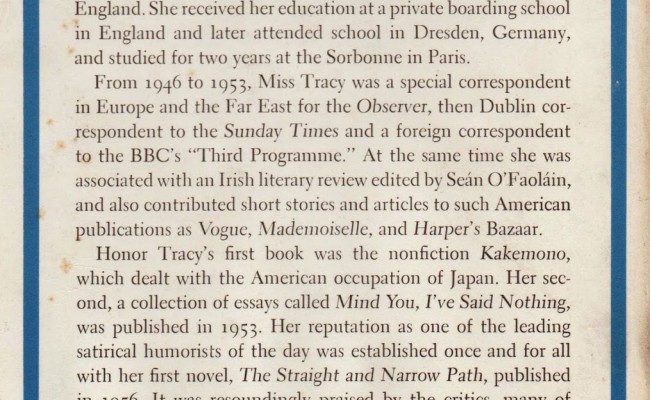The author bio briefly summarises an author’s life and achievements, usually in the third person. Buried in a publication’s contributor pages or tucked at the end of an article, the bio can seem vestigial: a mere convention or afterthought.
But I owe my first book to an author bio. In 2011, for the journal Kill Your Darlings, I reviewed the TV series Misfits, which follows teenagers with superpowers. My bio concluded: ‘If she had a superpower it would be to convince publishers to give her a book deal.’
Later, at an industry event, my current publisher revealed he was on the editorial board of Kill Your Darlings.
‘Have you got a book idea, then?’ he asked. Yes, I had.
The bio serves many rhetorical purposes: information-sharing, promotion, establishment of authority and relatability, even self-reflexive play. Obviously written by the author it describes – despite its third-person impartiality – the bio can express modesty, pride and, most precariously, faux modesty. My friend Lee Zachariah quips on his website that he’s ‘feigning humility on a website named after himself’.
Jocularity in bios can frame the author as a jolly fun-lover or, alternatively, acts as a defensive strategy, to demonstrate a knowledge of how ridiculous the exercise is. Other bios are all business, tersely stating facts. Still others are enigmatic to the point of pomposity.
Despite the officious ‘dos and don’ts’ style guides for aspiring writers, deciding what to put in a bio is personal. It’s an attempt to transmute your uncertain, equivocating inner self into a confident, accomplished public persona. Where does describing your personal life veer into ‘too much information’? And what makes an achievement noteworthy?
Writer Courteney Hocking told me on Twitter: ‘I like to know if people’ve won stuff. I find it reassuring that someone else judged them okay first. When I write mine, I see it as basically a short collection of reference points so readers know roughly where I fit.’
Some bios, though, are overwhelmed by their reference points and consist almost entirely of a list of publications in which the author’s work appears. I feel it’s gauche to piggyback your reputation on those of the mastheads you’ve written under. All it reveals is your competence as a freelancer – not what separates you from other contributors to those publications. Authors ought to be more than the sum of their résumés.
Still, as long as people persist in linking professional prestige with particular mastheads, this practice will continue. As Courteney suggests, mastheads imply gatekeepers, and gatekeepers imply literary quality.
Geography also categorises authors. Are you a local or an expat? Do you hail from a sophisticated literary metropolis? A gritty heartland? A hipster haven? But place cuts both ways. Rural locales could seem romantic … or provincial. Extensive travel could make you look adventurous … or aimless. (Or rich, in the case of the bio subgenre in which the author divides her time between two equally desirable places.)
To me, ‘try-hardness’ – a dissonance between tone and content – is the most unfortunate quality in a bio. Small, vague achievements may be described in a self-aggrandising tone. Very impressive achievements can be casually glossed, as if the author feels somehow above grubby self-promotion. Too much length and detail can sound vain. An attempt at lightheartedness may instead read as desperation.
Young and emerging writers can – and I say this gently – be total try-hards. I had an incredibly try-hard bio on the website of Is Not Magazine, the publishing project I co-founded in 2005. My desire to seem cool and funny is achingly obvious: ‘Her first foray into magazine publishing was the pornographic The Prefty Book, for which she was sent to the principal’s office in 1986. She said the “naked ladies” were “artistic”.’
In 2009 I was still larding my bios with attempts to seem adorkable: ‘Mel drinks vast quantities of tea and wears pyjamas until lunchtime.’ Both these things are still true, but tea-drinking doesn’t look nearly as lazy and unprofessional.
When I recently edited my website’s ‘About’ page, I winced to see that at some point I’d revised the pyjama bit to ‘cheap T-shirts with animals on them’. I intended this both to flag my research interest in clothes and to appear cool. But now, it just seems juvenile. The latest bio explains that I ‘enjoy wearing bright and jaunty colours’, which I’ll probably find cringingly stupid in a few more years.
A trail of previous bios offers uncomfortable proof that authors constantly reframe and refine their public personas over time. When I leave a job, I ruthlessly excise it from my bio because I don’t want to coast on ‘ex-’ and ‘former’ glory. But alternatively, I could be embarrassed later if my vaunted ‘current’ work in progress doesn’t pan out.
Should a bio celebrate the past or promise the future? That’s another decision for each author. But in striving to snap-freeze an essential expression of authorship, the bio can in turn shape the way authors are read, interpreted and valued.



